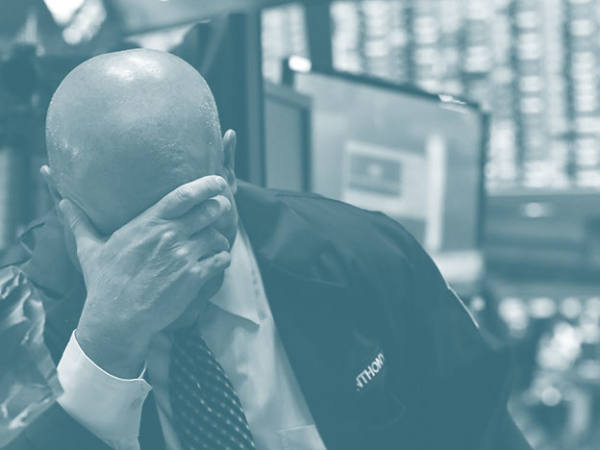The folk who propel the world’s financial markets seem equally uncertain. They are split between hunkering down in the comparative safety of government bonds; ‘comparative’ because they are guaranteed to lose money, but only a little and a pre-determined amount. Alternatively, many are seduced by the notion of one last binge in the world’s equity markets even at the risk of being caught by the ice sheet’s unpredictable advance.
And, let’s face it, many don’t know what to do because they have never been in this situation before. After 10 years of uninterrupted economic growth and 10 years of equity and fixed-interest markets pretty well following suit, why would they? Perhaps to exacerbate matters, those who least know how to respond are also those who are least likely to acknowledge – or even to be aware of – their lack of the appropriate skills.
It calls to mind the adage that only experts know when they don’t know. It also recalls a famous academic paper – if that’s not an oxymoron – from 2009 that discussed the use of intuition in decision making, particularly the high-pressure decisions needed in risky situations. As such, the paper – Conditions for Intuitive Expertise – is especially relevant for today’s markets that dance in the space between frolicking and fear.
What was remarkable about the paper was that it was co-authored by two experts in the psychology of decision-making who came from opposite ends of the spectrum. One was Nobel Prize-winning economist Daniel Kahneman, whose ‘prospect theory’ focuses on the poor decisions people make when they choose intuition ahead of rationality. The other was Gary Klein, best known for his 1999 book Sources of Power: How People Make Decisions, which champions the efficacy of intuition.
Perhaps more remarkable, as the two explored the boundaries between decisions led by intuition and those based on statistical probability, they found that they agreed on more than they disagreed. Yes, intuition could be useful, they said, but only in limited circumstances and – miserably – those circumstances rarely included anything to do with financial markets.
As to why, let’s start with the core questions Messrs Kahneman and Klein addressed – when should people trust their gut instinct and how reliable is instinctive decision making in high pressure situations, such as fighting a fire in a 20-storey building or a metaphorical conflagration in a melting financial market?
First, they agreed that there is intuition, though it is “nothing more and nothing less than recognition”. Such a deliberately-prosaic definition is important because it “de-mystifies intuition”, which too often is endowed with “an almost magical aura”. Second, they specified two conditions needed for instinctive assessments to become properly skilled. They required lots of sufficiently-consistent information – “valid cues”, in the academics’ jargon – and the assumption that, with practice, those cues could be memorised.
Some situations more readily provided cues than others. Thus, they said, “it is very likely that there are early indications that a building is about to collapse in a fire”; but “it is unlikely that there is publicly-available information that could be used to predict how well a particular stock will do”. As a result, “we have more reason to trust the intuition of an experienced fire commander about the stability of a building than to trust the intuitions of a trader about a stock”.
That might sound a bit arbitrary, but similar conclusions had been reached by a leading researcher into expert performance, James Shanteau of Kansas Sate University. He found that intuitive expertise was strong in professions such as livestock judges, test pilots, chess grandmasters and – interestingly – accountants and insurance analysts. Yet it was noticeably absent among psychiatrists, court judges, personnel officers and – wouldn’t you know it? – stockbrokers.
That accountants and insurance analysts should have good intuition while stockbrokers, whose skills would often overlap, should have poor intuition might look anomalous. Yet the skills needed, say, to assess a company might have no connection to the skills needed to asses the performance of the company’s stock. But the poor old stockbroker may not have the luxury of being able to make the distinction.
It might also be explained by the extent to which those needing to make quick assessments have skin in the game. Mr Klein’s work focused on occupations where overconfidence was lower precisely because the risks of getting it wrong were higher. That would obviously apply to fire-fighting. But those in jobs such as structural engineering and even weather forecasting had superior intuition because they used standard methods that gave clear feedback and they faced direct consequences for errors. As a result, they appreciated the boundaries of their expertise and rarely strayed beyond them
Much less did those restraints apply to brokers working in chaotic environments of fuzzy feedback, such as financial markets, where there would still be “lucky individuals susceptible to an illusion of skill and overconfidence”. “The finance industry is a rich source of examples,” the authors add pointedly.
In which case, readers might also want to ask if Bearbull has sufficient skin in the game? Possibly not. Then again, I’ve been around the block often enough to know my limits. As I said at the start, there’s a mighty judgement coming, but I may be wrong.











